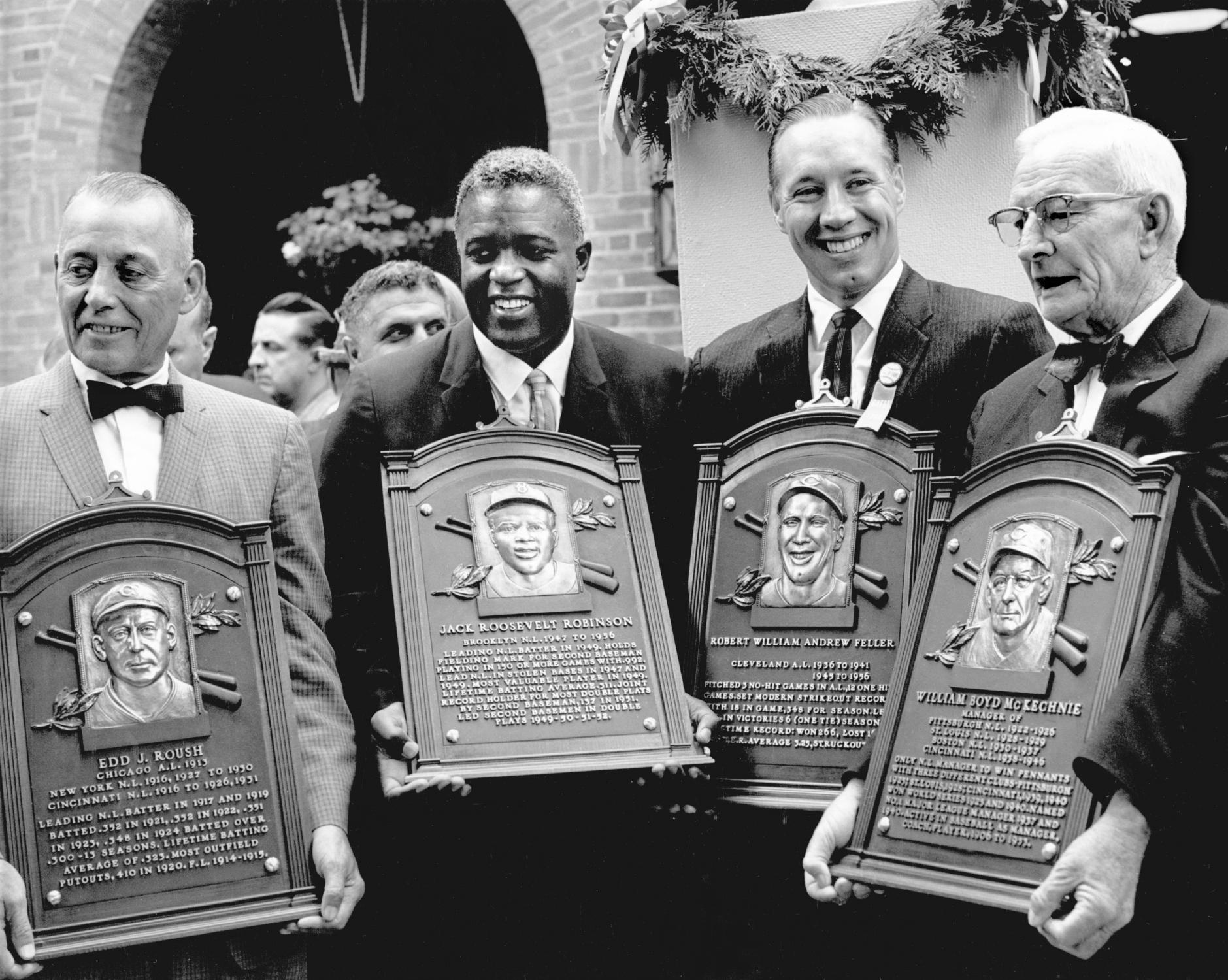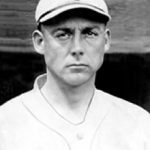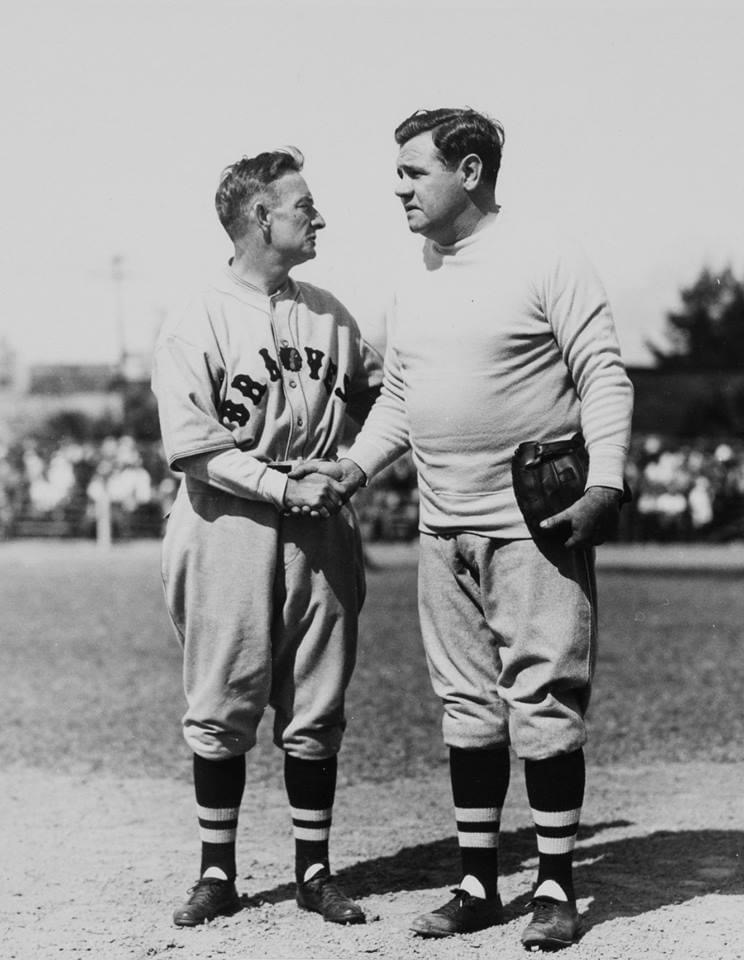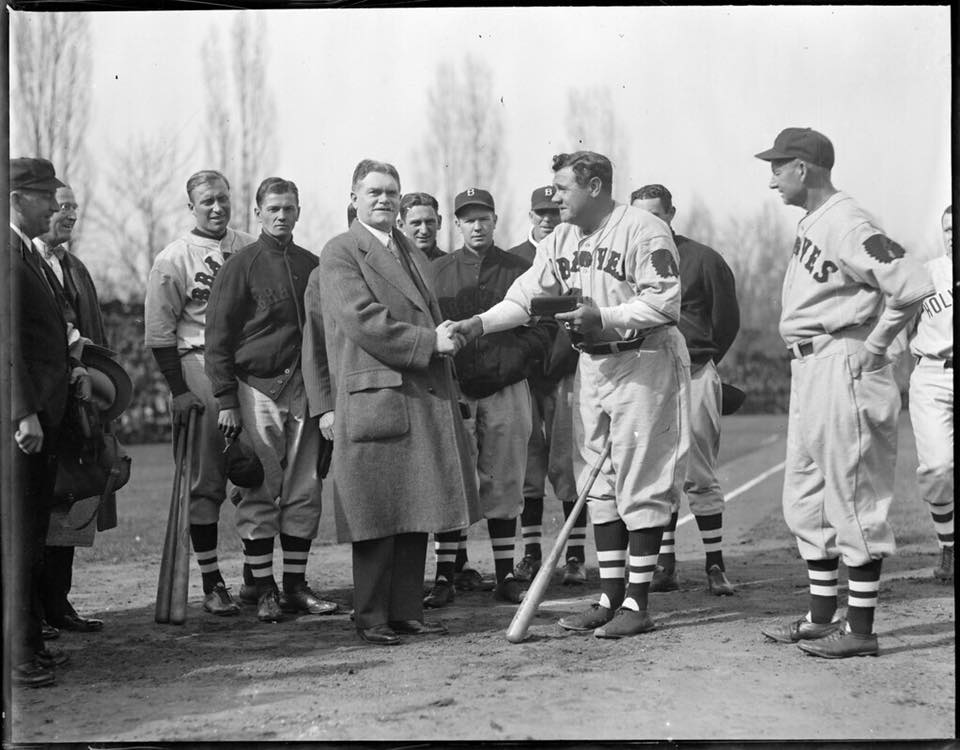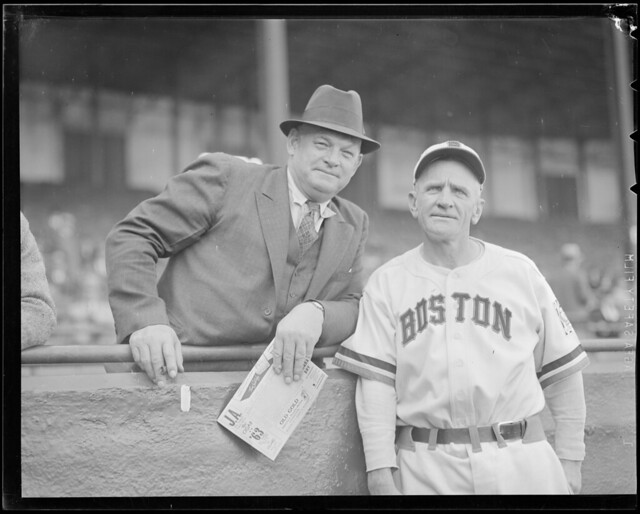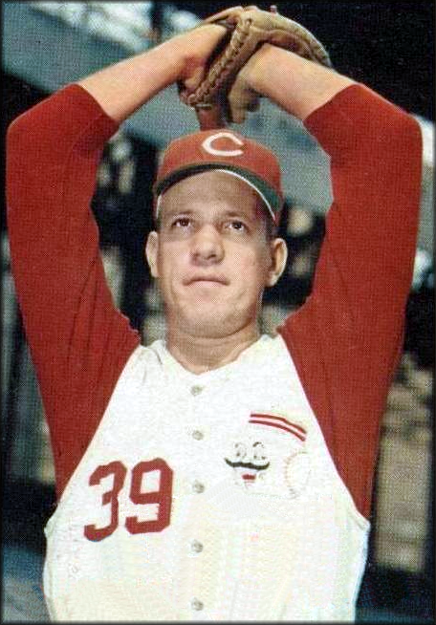Bill McKechnie Stats & Facts
Special Memory or Event? Want to have some fun? Advertise your business? Dedicate this page
Bill McKechnie
Positions: Third Baseman, Second Baseman and First Baseman
Bats: Both • Throws: Right
5-10, 160lb (178cm, 72kg)
Born: August 7, 1886 in Wilkinsburg, PA
Died: October 29, 1965 in Bradenton, FL
Buried: Manasota Memorial Park, Bradenton, FL
Debut: September 8, 1907 (2,966th in major league history)
vs. CHC 4 AB, 1 H, 0 HR, 1 RBI, 0 SB
Last Game: September 28, 1920
vs. CIN 1 AB, 0 H, 0 HR, 0 RBI, 0 SB
Hall of Fame: Inducted as Manager in 1962. (Voted by Veteran’s Committee)
View Bill McKechnie’s Page at the Baseball Hall of Fame (plaque, photos, videos).
Full Name: William Boyd McKechnie
Nicknames: Deacon
View Player Info from the B-R Bullpen
View Player Bio from the SABR BioProject
Notable Events and Chronology for Bill McKechnie Career
Biography
Deacon Bill was what is known as “a sound baseball man.” He was an unexceptional player; his knowledge of the game exceeded his physical ability. In 1913 Yankee manager Frank Chance played him at second base despite his deficiencies because, he said, McKechnie “knew more baseball than all the rest of my team put together.” McKechnie had a checkered career as a utility infielder. Between 1912 and 1916, he played for eight teams, including a one-game stint with the Braves. His two Federal League seasons (1914-15) were his most productive. Sold to the Giants when the Feds collapsed, he was included in the July 1916 trade that sent Hall of Famers Edd Roush and worn-out Christy Mathewson to the Reds for Buck Herzog and Wade Killefer.
Managing was his forte. He won pennants in three cities – a record that has never been matched. His first trial as a manager came at age 29, with the Newark Peps (FL) for 102 games in 1915. He succeeded George Gibson at Pittsburgh in mid-1922 and brought the club from fifth place to a tie for third. In 1925 he won his first pennant and defeated the Senators in the World Series, but was fired a year later when the appointment of former Pirate skipper Fred Clarke as a management consultant in the dugout led to confusion and a player revolt. After moving to St. Louis as a coach, McKechnie took the reins when Bob O’Farrell was removed for failing to win the 1927 pennant. McKechnie obliged Cardinal owner Sam Breadon by managing the Cardinals to first place in 1928, but the four-game World Series loss to the Yankees led to his 1929 demotion to Rochester (International League), while Rochester’s manager, Billy Southworth, took over the Cardinals. Late in the season, Breadon decided he had made a mistake, and switched them back; combined, Southworth and McKechnie managed a fourth-place Cardinal finish.
McKechnie followed with eight years as the Braves’ manager, never finishing higher than fourth. In 1935 Boston lost a club-record 115 games, but McKechnie remained through 1937. He spent nine seasons managing at Cincinnati, winning pennants in 1939 and 1940. In the 1939 WS he was swept by the Yankees again, but in 1940 his Reds beat the Tigers in seven.
A baseball conservative, Deacon Bill was more effective with pitchers than hitters, although his shrewd coaching of Larry Doby at Cleveland (1947-49) hastened the youngster’s adjustment to the major leagues. He was strict with players, but his quiet self-discipline and fairness won their respect. McKechnie was money-conscious, and his moves to Boston and Cincinnati were for lucrative, long-term contracts. He was a churchgoer and family man, which earned him his nickname.
Despite eight seasons at the helm of the Braves, where he won less than 46% of the time, McKechnie retired with a respectable .524 winning mark and more than 1,800 victories. He was elected to the Hall of Fame in 1962.
Best Season
The 1940 Cincinnati Reds finished 12 games ahead of Brooklyn, winning 100 games. McKechnie’s team led the National League in pitching by more than a half-run, with a 3.41 ERA. Starters Paul Derringer, Bucky Walters (a converted infielder), and Junior Thompson combined to log 59% of the Reds’ innings. The three right-handers ERA was 2.92; Derringer and Walters won 20 games apiece, and Thompson gathered 16. The #4 starter, “Milkman Jim” Turner, was 14-7 with a 2.89 ERA. Big first baseman Frank McCormick (at 6’4″ he was very large for that era), won the MVP Award with a .309 average, 44 doubles, 19 homers, 127 RBI and just 26 strikeouts. Ernie Lombardi did his usual splendid job with the stick while catching two out of every three games: .319 with 14 homers and 74 RBI in 376 ABs. Second baseman Lonny Frey led the league in steals, and right fielder Mike McCormick hit over .300. The Reds survived the Detroit Tigers in a tight seven-game World Series, winning the finale 2-1 behind Derringer. Jimmy Ripple, a well-traveled outfielder acquired from the Dodgers in mid-season, emerged as the unlikely star of the series, hitting .333 with three extra-base hits and six RBI.
@ET-DC@eyJkeW5hbWljIjp0cnVlLCJjb250ZW50IjoicG9zdF90YWdzIiwic2V0dGluZ3MiOnsiYmVmb3JlIjoiTGVhcm4gTW9yZSBhYm91dCB0aGUgdGVhbXMsIHBsYXllcnMsIGJhbGwgcGFya3MgYW5kIGV2ZW50cyB0aGF0IGhhcHBlbmVkIG9uIHRoaXMgZGF0ZSBpbiBoaXN0b3J5IC0gLSAtIC0gLSAtIC0gIiwiYWZ0ZXIiOiIiLCJsaW5rX3RvX3Rlcm1fcGFnZSI6Im9uIiwic2VwYXJhdG9yIjoiIHwgIiwiY2F0ZWdvcnlfdHlwZSI6InBvc3RfdGFnIn19@

